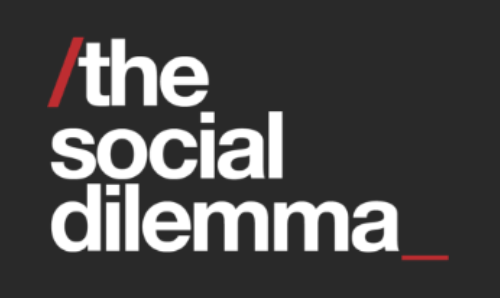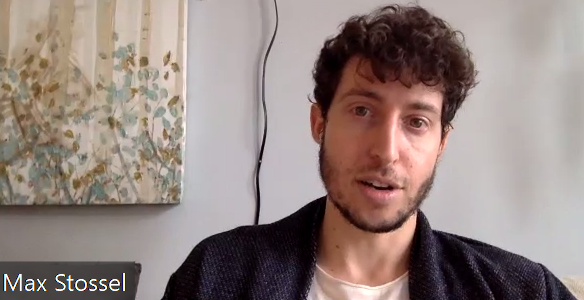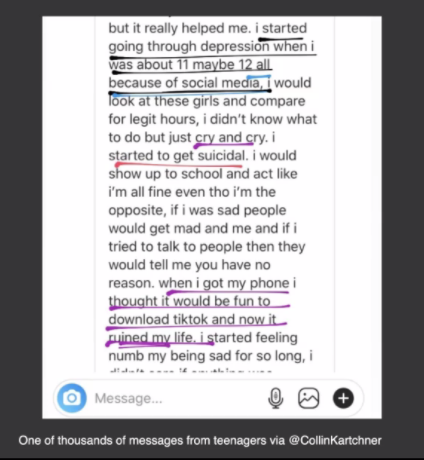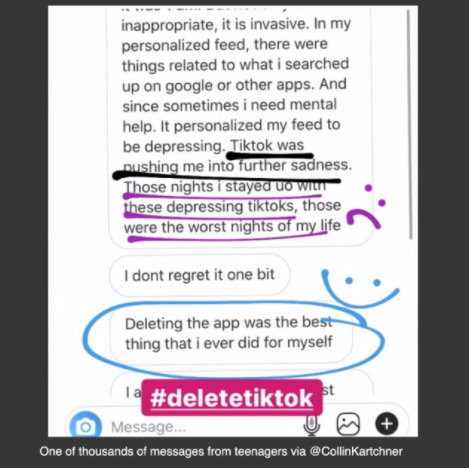
The Social Dilemma, a Netflix premier, exposes the outsized influence that social media and invasive technology have on our psyches, culture, and political systems.
The movie showcases a slew of disgruntled former tech executives who tell of impenetrable algorithms, persuasive design, and extractive economic models that many of them helped create.
We see in actual news footage how false or misleading Facebook ads have swayed voters and elections. A dramatization of a typical American family depicts how the teenage son, despite his mother’s efforts, is insidiously lured into jeopardy by the contents of his phone.
The movie is directed by Jeff Orlowski, a Stanford classmate of Tristan Harris, whom I first reported on here in 2015. That’s when Harris began to pull back the curtain on Big Tech’s predatory practices, including by his then-employer, Google. Ever since, Harris has doggedly spread his message through TED talks, tech design meetups, and U.S. Congressional hearings.
Here at The Durable Human, we believe that products designed for people should always serve—and never impede or supersede—ourselves as human beings. Harris and his Center for Humane Technology hold the same tenet.
The Social Dilemma is a call to action, especially for the Last Generation, B.C., whom I call in How to Be a Durable Human, “the vanishing cohort of humans who grew up Before Cellphones.” Or, as Harris says in the movie, “the last generation of people that are gonna know what [life] was like before this illusion took place.”
After you watch The Social Dilemma, consider using your wisdom and movie discussion guide to talk it over with friends and family.
Facebook is miffed by the movie’s portrayal, claiming in this 7-point rebuttal that it “gives a distorted view of how social media platforms work” and doesn’t convey the current reality.
While the movie was in production, for instance, the company says it gave users more control of their time spent and data collected on the platform. With new Facebook safeguards, the rebuttal reads, “we removed over 22 million pieces of hate speech in the second quarter of 2020, over 94% of which we found before someone reported it.”
While some improvements are being made, here are 13 ways to take charge of your digital presence:
1. Read social media posts and articles before sharing.
By pausing to review the content, you’re less likely to inadvertently spread false or misleading information.
2. Don’t click on videos recommended by YouTube.
This will help you manage your time and prevent powerful algorithms from driving you down rabbit holes of disinformation.
3. Take time to protect your privacy.
As a starter, protect your Facebook data from third-party apps with this resource I discovered through the Digital Wellness Institute certification program.
4. Use a search engine other than Google.
My go-to is the durable human design, DuckDuckGo. It doesn’t track you because it bypasses companies that feed off the data that Google collects.
5. Inform the Authorities.
Lawmakers, government officials, and school administrators need to hear from you when you think boundaries are needed to contain the reach of technology firms.
6. Speak up to Tech.
Get in touch directly with offending tech companies when you see egregious practices or products. The California Privacy Act complaint form can be used as a model.
7. Break out of your filter bubble.
With the media content aggregator, Allsides.org, you can read news stories on the same topic from the political left, right and center.
8. Report misinformation.
Send screen shot or image evidence to MapLight’s Text-to-Report line: (662) 667-1234. MapLight flags social media companies and pushes Congress “to pass laws to better regulate social media and technology companies like Facebook.”
If you use social media and have or influence children:
9. Be a good role model.
Show and tell your kids how you manage your digital life and explain why they need to carefully ease into tech usage.
10. Give smartphone alternatives.
When they’re responsible enough to have a phone, consider the Internet-free but still “cool” Gabb Wireless.
11. Delay social media.
Most mental health experts suggest children should not use social media until at least high school. Group texting can be an alternative.
12. Delete toxic apps.
TikTok is “the best [attention-devouring] slot machine ever designed,” according to Max Stossel of the Center for Human Technology. Snapchat and Instagram can also damage young psyches, says Stossel.

This is one of Max’s examples:

13. Involve your child in making their rules.
On a Children and Screens panel on persuasive technology and kids, Stossel suggested asking not only which platform or game your child prefers, but also: “How does it make you feel both during and after use?”
This girl was completely bereft until she ditched TikTok:

All this is an argument for why we must cherish and use the assets that only we as human beings possess, starting with kindness and compassion. Developing social-emotional durability, says Stossel, “is so important to have in the arsenal to fight against the persuasive technology machine.”
~~~
Post script: In the new book, Which Side of History? How Technology is Reshaping Democracy and Our Lives, hear from many voices featured in How to Be a Durable Human: Revive and Thrive in the Digital Age Through the Power of Self-Design, including Tristan Harris, Former U.S. Surgeon General Vivek Murthy, MIT’s Sherry Turkle, Huffington Post founder Arianna Huffington, and Jim Steyer of Common Sense Media.
About the author: Jenifer Joy Madden is a Syracuse University adjunct professor of digital media, health reporter, certified digital wellness instructor, and founder of DurableHuman.com.




I watched the social dilemma last week. It was scary to realize how much of a hold my social media had on me. Now that I have identified my addiction this blog has helped open my eyes to ways I can overcome it, and help others do the same. Thank you!
Thanks for the feedback. Awareness is the first step toward better managing your digital presence!